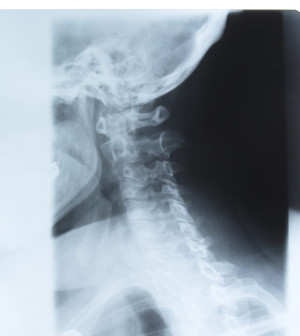- Could Artificial Sweeteners Be Aging the Brain Faster?
- Techniques for Soothing Your Nervous System
- Does the Water in Your House Smell Funny? Here’s Why
- Can a Daily Dose of Apple Cider Vinegar Actually Aid Weight Loss?
- 6 Health Beverages That Can Actually Spike Your Blood Sugar
- Treatment Options for Social Anxiety Disorder
- Understanding the Connection Between Anxiety and Depression
- How Daily Prunes Can Influence Cholesterol and Inflammation
- When to Take B12 for Better Absorption and Energy
- Epsom Salts: Health Benefits and Uses
Pregnancy Often Leads to Changes in Migraines


Women who suffer from migraines may notice changes in their headache patterns when they’re pregnant, experts say.
For example, many women will have fewer migraines during pregnancy.
“If you suffer from migraine, there’s a good chance your migraine attacks will improve during pregnancy,” Dr. David Dodick, chair of the American Migraine Foundation, said in a foundation news release.
“Research has shown that 50 to 80 percent of women who have migraine before pregnancy may notice a reduction in migraine attacks, especially in the second and third trimesters, likely due to a rise in estrogen levels,” said Dodick, a professor of medicine at the Mayo Clinic School of Medicine in Arizona.
Women who have migraines associated with menstruation are particularly likely to have fewer attacks during pregnancy, the study authors pointed out.
However, Dodick said that some women who never had a migraine may get them for the first time during pregnancy. And, he said, some women with a history of migraine may have more severe attacks during pregnancy.
Some women with migraine may be at risk for pregnancy complications. For example, one study found that women with migraine were more likely to have blood vessel complications, sleep problems and more weight gain during pregnancy.
Dr. Sheena Aurora is a clinical associate professor of neurology and neurological sciences at Stanford University School of Medicine in California. She said, “Women with migraine should consider many aspects of pregnancy that migraines may affect. They should also talk with their doctor about what, if any, migraine medications to take during this time.”
Aurora, who is also a board member of the American Headache Society, added that women with migraine should “make sure their blood pressure and cholesterol are under control, and to stop smoking before they get pregnant.”
Also, she said, “if you have migraine, you should be seeing a migraine specialist, and make sure your obstetrician and migraine specialist are communicating regularly before and during your pregnancy. In some cases, your migraine specialist may also bring in a perinatologist, who specializes in maternal-fetal medicine, or a pregnancy pharmacologist.”
Lifestyle factors such as nutrition, exercise and sleep are also important.
“Patients need to recognize stressful situations and learn how to cope with them by learning relaxation techniques or meditation,” Aurora said in the news release. “Pregnant women who suffer from migraine should also speak with their doctor about whether yoga or massage are safe and might be helpful.”
More information
The U.S. Office on Women’s Health has more about migraine.
Source: HealthDay
Copyright © 2026 HealthDay. All rights reserved.










